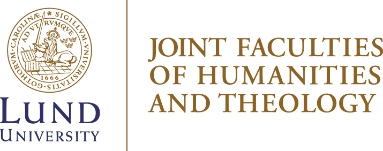International opportunities for employees
Joint Faculties of Humanities and Theology
Lund University is one of Europe’s leading universities and has a strong international orientation. For employees, this offers good opportunities for networking and skills development. However, global challenges and a changing world require new ways of working. Internationalisation at home is one such approach.

An international university
Lund University has an ambitious internationalisation strategy and was recently ranked 61st in the world in Times Higher Education’s Most International Universities in the World (2023). What does this mean for employees at LU? Both opportunities and challenges, one could argue.
Diversity
The opportunities are many and obvious, for all categories of employees. LU is proud to host students and researchers from over 140 countries and 650 partner universities, and to have extensive research collaborations worldwide. This means that research and teaching staff have rich opportunities for networking and exchanges both in and outside Lund, and that technical and administrative staff work in a stimulating and diversified environment. In some cases, there are good opportunities for career and skills development for staff in the field of internationalisation.
However, challenges are not lacking. Research and teaching staff are competing for funds in an extremely competitive environment, both nationally and internationally, and increasingly have to tackle the challenge of teaching heterogeneous groups of students with widely differing backgrounds and experiences. At the same time, technical and administrative staff are expected to continue providing good service to a growing number of international students and short or long-term employees, often in languages other than Swedish. LU’s ambitions to widen recruitment and widen participation amplify these challenges.
Sustainability
Like all other higher education institutions in Sweden, LU has to relate to the global goals formulated within the framework of the 2030 Agenda. Together with 37 other Swedish higher education institutions, LU has joined the Climate Framework. All university activities should contribute to the work to foster inclusive and sustainable societies and endeavour to promote social, ecological and economic sustainability.
Global challenges require integrated internationalisation
An understanding of the world around us is required to be able to deal with the major global challenges we are facing. A world-class university should strive for integrated internationalisation, which benefits the entire organisation. It is therefore essential that all categories of staff are offered opportunities for intercultural skills development. The following web pages have been geared towards three groups of employees who have different needs and wishes regarding administrative support linked to internationalisation: technical-administrative staff (TA staff), doctoral students, and researchers/teachers.
Both the university and the individual have much to gain from the fact that there are now two possible routes to intercultural skills development for LU employees:
Prof. Darla K. Deardorff (Duke University, USA) is often quoted as emphasising these steps on the road to intercultural competence:
- Attitudes like respect, openness and curiosity, which support the ability to develop knowledge and skills.
- Knowledge, such as cultural self-awareness, culture-specific knowledge and understanding of other world views.
- Skills for assimilating and processing knowledge, such as observing, listening, evaluating, analysing, interpreting and relating.
Ideally, these attitudes, knowledge and skills lead to flexibility, adaptability, an ethnorelative perspective and empathy (internal outcomes).
The sum of attitudes, knowledge and skills as well as internal outcomes is demonstrated through the individual's behaviour and communication. These become the visible results of intercultural competence as perceived by others (external outcomes).


